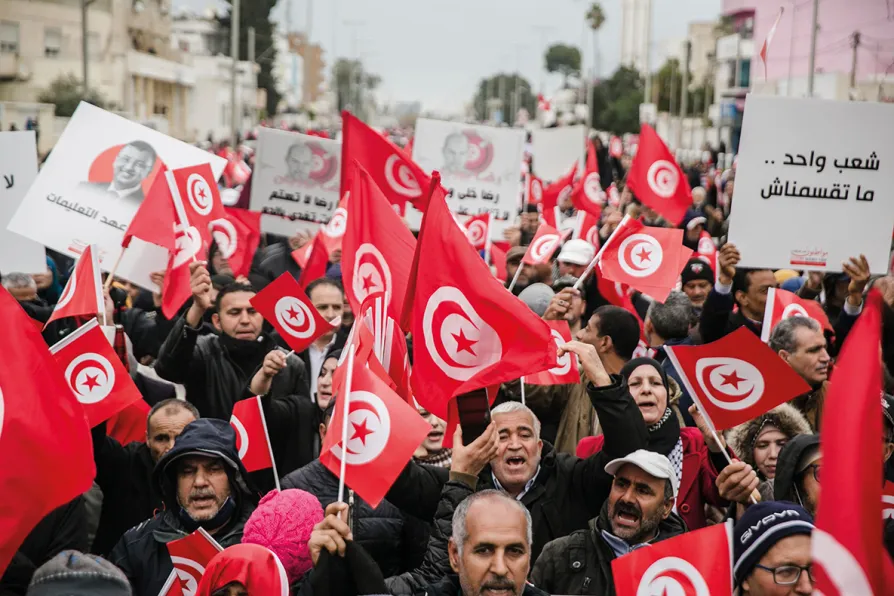This weekend, the NEU holds a special conference to debate changing its approach to organising teaching assistants, which a 2017 TUC agreement forbids. General secretary DANIEL KEBEDE outlines the choices before delegates

 Demonstrators march with Tunisian flags during a rally against President Kais Saied on the anniversary of Tunisia’s independence, Sunday March 20
Demonstrators march with Tunisian flags during a rally against President Kais Saied on the anniversary of Tunisia’s independence, Sunday March 20
JOURNALISTS in Tunisia will go on a nationwide general strike on April 2 to protest against governmental interference in public media and to defend the freedom of speech and freedom of the press in the country.
The National Syndicate for Tunisian Journalists (SNJT), Tunisia’s main journalists’ union, announced on Wednesday March 23, that it has approved a mass strike by journalists. Union official Amira Mohammed cited the “president’s attempts to control public media and the authorities’ insistence on hitting the sector” as the main reason for the strike.
The journalists’ union has criticised President Kais Saied and his regime for a number of recent measures which according to them drastically reduced the independence of state media.

Nigeria’s presidential spokesman grovels to the West in response to Washington intimidation, writes PAVAN KULKARNI

As the UAE-backed RSF carries out drone strikes on humanitarian infrastructure in war-torn Sudan, the US sells more weapons to the UAE, writes PAVAN KULKARNI












